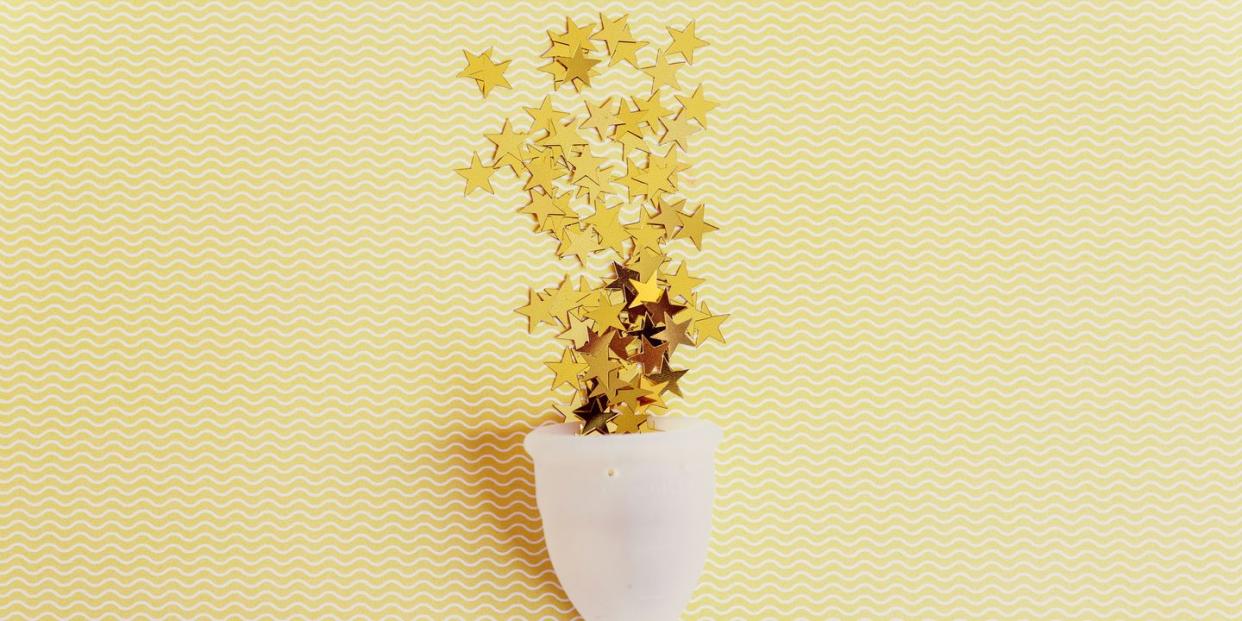7 Things Only Women Going Through Menopause Understand

Menopause is a time when estrogen and progesterone start fluctuating—sometimes wildly and unpredictably—as they make their way to an eventual decline. That hormonal roller coaster is just as jarring as a real-life thrill ride, and equally not for the faint of heart. The new life realities it brings are something only women who’ve got a ticket to that ride fully understand. For example...
Tank tops are essential. In February.
Some folks can dutifully stash away their lightweight, sleeveless, summery shells and tanks once the days grow short and the snowflakes fall. But you know seasons are just a state of mind and a scorching “heatwave” can break out at any time of year and most definitely when you least expect (or want) it. More than 80 percent of women will experience hot flashes—feelings of heat, sweating, flushing, and chills, lasting up to five minutes—during menopause. Savvy ladies have the layering down year-round.
Better make that a grande.
That menstrual cup you could once set and forget for the better part of a day just isn’t holding up the way it used to. In fact, no matter what form of “feminine protection” you prefer, there are months when you need to call for backup when Aunt Flo’s in town. Research shows it’s not uncommon for women to have periods marked by three or more days of heavy flow as they near the end of the menstruation line.
The “sprinkler system” seems to be malfunctioning.
Who doesn’t love a slip and slide? You get a running start and “wheee!” Unless of course, someone shuts off the hose. Then that whoo hoo becomes whooOWWWWW! That’s a decent metaphor for what used to be some slippery adult fun when the slide loses its natural lube as estrogen declines.
Bedwetting takes on new meaning.
Even if you never wet the bed as a kid, you will now know the joy of waking up at 3 a.m. on cold, wet sheets with soaked PJs after breaking into a sopping sweat in the middle of the night for no apparent reason. A bedside towel and a fresh set of pajamas are your new best friend.
Smashing dishes is easier than stacking the washer.
Toothpaste oozing on the bathroom counter, mounds of unsorted laundry, those freakin’ dishes that somebody (anybody) was supposed to do yesterday—might as well burn the house down. Or at least that’s how your newfound, free-floating rage can make you feel some days. On a serious note, because these hormonal fluctuations can have a profound impact on your mood—hence the anger—the risk of depression rises as well. Your doctor can provide therapies that can help.
2 a.m. is the new 7 a.m.
It’s always nice to start the day early. But it would be great if someone could tell your brain it doesn’t need to start quite that early, as you stare into the void wide awake at 2 a.m. night after night. If it’s any consolation, you’re far from alone. More than half of women in the menopausal transition struggle to get enough sleep and more than a quarter say their sleep disturbances are severe enough to impact their daytime functioning.
There was one more… as soon as I remember I’ll tell you!
Brain fog is real. As your hormones fluctuate, it can be hard to stay focused, recall words, and perform tasks like adding a series of numbers in your head. It’s frustrating, but hang tight. Research shows the fog clears and brainpower rebounds when you’re on the other side of the transition and in postmenopause.
Selene Yeager is the host of Hit Play Not Pause, a feisty menopause podcast for active, performance-minded women.
You Might Also Like